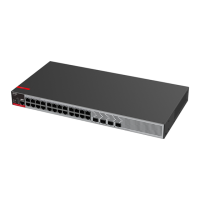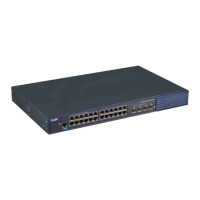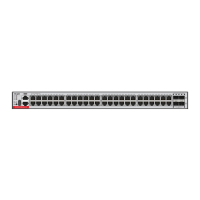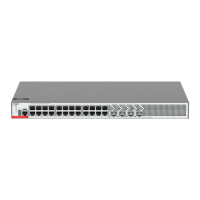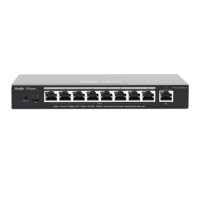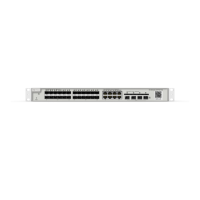Configuration Guide SEM Configuration
None event detector
None event detector will not carry out actual detection. Instead, it is triggered by executing
"smart manager run" command. The parameter of this command is the name of policy
containing none event. When this command is successfully executed, the corresponding
none event of the policy will be triggered. Two waiting modes are supported when none
event is triggered.
Synchronization mode: Once none event is triggered, CLI synchronously waits
for the completion of policy execution before release.
Asynchronization mode: The null event will be released directly without waiting
after being triggered.
OIR event detector
In a modularized device, the OIR event detector will detect the online insertion and
removal of modules, which will trigger the OIR event. Two types of events are supported
by the OIR event detector.
Plug-in
Plug-out
SNMP event detector
SNMP event detector can be classified into the following three types:
SNMP MIB detector: collect and take statistics of SNMP MIB object values.
When any SNMP MIB object value exceeds the threshold configured, SNMP
MIB event will be triggered, after which this SNMP MIB event detector will be
temporarily disabled until the SNMP MIB object value reaches the recovery
threshold or the out-of-service time has exceeded its recovery cycle.
SNMP Trap detector: By detecting SNMP traps, it will trigger SNMP event when
any SNMP Trap complies with event configurations.
SNMP Object detector: By detecting SNMP operations, it will trigger SNMP
event when any SNMP operation complies with event configurations. SNMP
Object detector supports synchronization mode and asynchronization mode,
and is capable of giving customized SNMP replies with the help of SNMP Object
action.
Syslog event detector
Syslog event detector will detect device logs, which will be subject to regulation match.
Once matched, the Syslog event will be triggered.
Timer event detector
The timer event detector detects time related events, which can be classified into:
Absolute-time-of-day timer event: An absolute-time-of-day timer is set to a
future time. When this time comes, the timer event will be triggered.
Countdown timer event: The timer is set to the seconds counting from policy
initiation, and the timer event is triggered when the timer counts down to zero.

